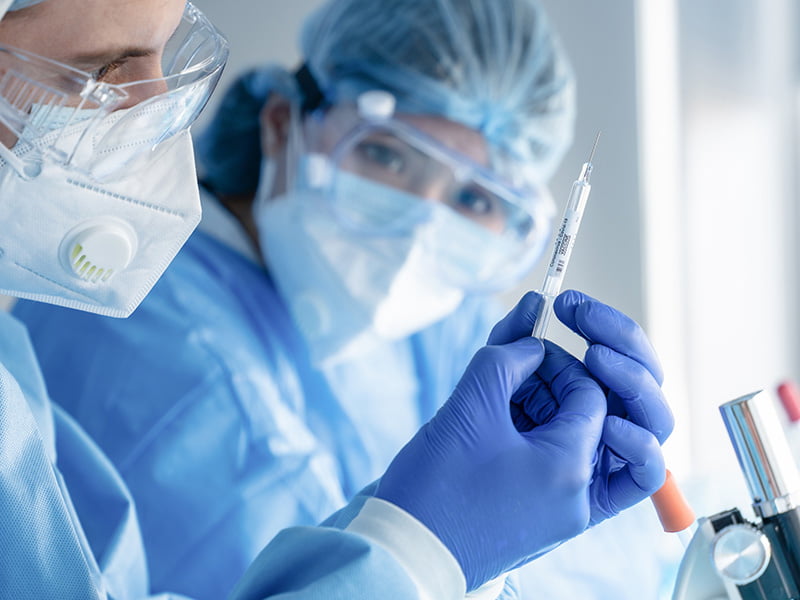21 research projects from 11 universities will share in $4.9 million in the pilot phase of Australia’s newest research commercialisation push, which has struggled to get off the ground after high demand.
The inaugural projects for Australia’s Economic Accelerator (AEA) — an 11-year, $1.6 billion stage-gated funding program — include battery recycling, direct air carbon capture, green hydrogen, and solar cell technologies in the pilot’s renewables and low emissions stream.
Another stream for medical science is backing projects like treating kidney disease and diabetes, predicting and preventing epileptic seizures, and cancer immunotherapy.
To be eligible for AEA funding, projects must have high translation or commercialisation potential and align with the priorities of the government’s $15 billion National Reconstruction Fund.

Recipients were quietly revealed on Tuesday, around five months later than the planned announcements for the pilot.
The Department of Education published the list after some recipients had been revealed through administrative documents earlier this month and following questions from InnovationAus.com about the AEA’s slow start.
The AEA had planned to launch in May or June with the announcement of initial seed grants, but was pushed back to quarter three after hundreds of applications sought more than 10-times the pilot’s available funding.
The revised deadline was also narrowly missed, but a full list of recipients for the AEA seed grants tranche one is now available.
Renewables and Low Emission Technologies
| University | Project Title | Lead Entrepreneur | Grant Funding |
| Griffith University | Lithium-ion battery recycling and reclamation | Dr Zhenzhen Wu | $280,623 |
| Macquarie University | Industrially viable manufacturing for next generation solar cells | Prof Shujuan Huang | $196,621 |
| Monash University | Direct air capture of carbon dioxide and water to enable sustainable biomanufacturing | Dr Masood Sheikh Alivand | $194,439 |
| RMIT University | NanoVibeH2: High frequency sound wave electrolytic enhancement for efficient green hydrogen production | A/Prof Amgad Rezk | $157,282 |
| The University of Adelaide | Developing high-performance nickel-rich layered cathodes for automotive lithium-ion batteries | Dr Gemeng Liang | $191,897 |
| The University of Adelaide | On-sun testing of thermo-photocatalytic water-splitting for hydrogen production | Prof Greg Metha | $470,511 |
| The University of New South Wales | Low-emission carbon dioxide recycling technology for concrete masonry production | Dr Alireza Kashani | $199,865 |
| The University of New South Wales | Commercialisation of a novel conductive polymer for next-generation solar modules | Dr Ziheng Liu | $195,000 |
| The University of New South Wales | Geothermal cities: Transforming urban energy supply with innovative and cost-effective shallow geothermal systems | Dr Asal Bidarmaghz | $199,953 |
| The University of Queensland | Market-relevant rechargeable aluminium battery prototyping | Dr Xiaodan Huang | $151,960 |
| University of Southern Queensland | Development of low carbon emission and sustainable reformable thermoplastic GFRP composites | Dr Omar Alajarmeh | $160,000 |
Medical Science
| University | Project Title | Lead Entrepreneur | Grant Funding |
| Monash University | Targeting the Kv1.3 potassium channel to treat chronic kidney disease | Dr Dorothy Wai | $196,297 |
| Queensland University of Technology | Development of a mini-gut reactor system for functional screening of gut microbiome modulators | Prof Yi-Chin Toh | $180,041 |
| The Australian National University | Developing spatial adaptive imaging for clinics | Dr Woei Ming Steve Lee | $141,483 |
| The University of Adelaide | Improving diabetes treatment with a point-of-care device to objectively assess disease | Prof Robert McLaughlin | $445,000 |
| The University of Melbourne | High resolution cortical recording for the prediction and prevention of epileptic seizures | Prof Steven Prawer | $294,119 |
| The University of Melbourne | A better fail-safe device to reduce femoral fractures in patients with osseointegrated implants | Dr Hans Gray | $199,937 |
| The University of New South Wales | Establishing vision-BaDGE anti-VEGF DNA therapy for age-related macular degeneration | Dr Georg von Jonquieres | $199,840 |
| The University of Queensland | Utilising alternative cytokine receptor signalling for enhanced cell-based cancer immunotherapy | A/Prof Andrew Brooks | $307,524 |
| The University of Queensland | ChimerDx – Next-generation rapid diagnostics using chimeric viral antigens | Dr Jody Hobson-Peters | $239,992 |
| The University of Queensland | Antigen specific immune tolerance induction technology using liposomes for treatment of drug free remission rheumatoid arthritis | Dr Hendrik Nel | $294,317 |
Education minister Jason Clare is yet to comment on the initial grants and is understood to still be considering appointments to the AEA advisory board that will guide the program and develop formal strategies.
The full AEA Ignite program is now expected to start next year with more one-year, $500,000 grants for more proof of concept projects.
Do you know more? Contact James Riley via Email.

